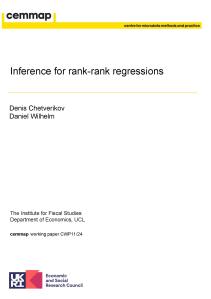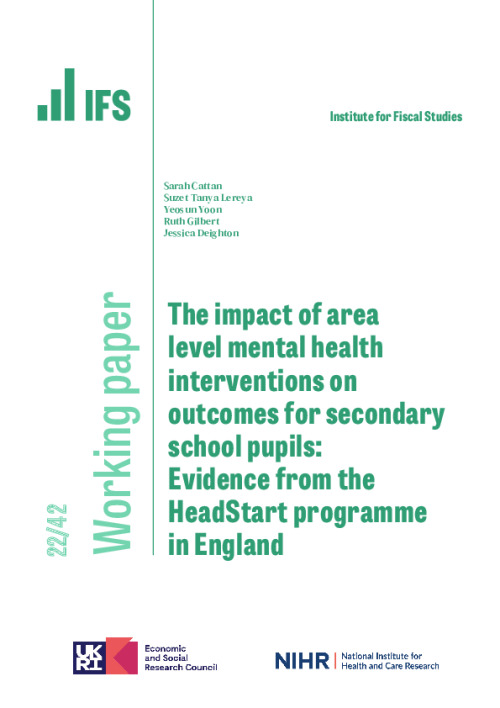In light of the dramatic rise in mental health disorders among adolescents seen in the past decade across the world, there is an urgent need for robust evidence on what works to combat this trend. This paper provides the first robust evaluation of the impacts on school outcomes of 6-year funding programme (HeadStart) for area-level mental health interventions for adolescents. Exploiting educational administrative data on ten cohorts of state-educated secondary school students, we use the synthetic control method to construct counterfactual outcomes for areas that received the funding. We show that the funding did not affect students’ absenteeism or academic attainment, but it prevented around 800 students (c. 10% of students typically excluded yearly) from being excluded in its first year. The transient nature of this effect suggests that sustained funding for intervention is a necessary but not sufficient condition to maintain programme effectiveness over time.
Working Paper details
- DOI
- 10.1920/wp.ifs.2022.4222
- Publisher
- Institute for Fiscal Studies
Suggested citation
Cattan, S et al. (2022). The impact of area level mental health interventions on outcomes for secondary school pupils: Evidence from the HeadStart programme in England . 22/42. London: Institute for Fiscal Studies. Available at: https://ifs.org.uk/publications/impact-area-level-mental-health-interventions-outcomes-secondary-school-pupils (accessed: 30 June 2024).
More from IFS
Understand this issue

Election Special: Is there a 'conspiracy of silence' between both parties?
6 June 2024

Election Special: The UK economy since 2008
3 June 2024

Election Special: Your questions answered
27 June 2024
Policy analysis

How do the last five years measure up on levelling up?
19 June 2024

The uncertain course for school and college funding over the next parliament
19 June 2024

Free breakfast clubs in schools: what Labour’s plans would mean for pupils and families
25 June 2024
Academic research

The role of hospital networks in individual mortality
13 May 2024

The impact of labour demand shocks when occupational labour supplies are heterogeneous
28 June 2024

Inference for rank-rank regressions
28 May 2024


